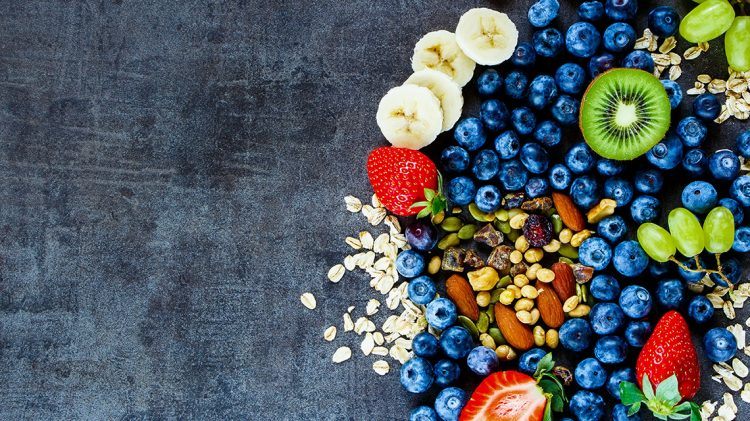
Back to
Basics
Simple guidelines for clean eating
May 21, 2017Simple guidelines for clean eating
May 21, 2017“Excuse me, can I please have an almond milk, decaf latte, ¾ full?” When did ordering become so confusing? The good news is, it doesn’t have to be. There is no magic pill when it comes to nutrition. So if you are a classic yo-yo dieter who moves from fad to fad with a few binge periods in between, it’s time to scrap that behaviour and develop an approach that is much more sustainable, healthy and also far more fun.
As a personal trainer, I get asked all the time about what to eat, when to eat and what to avoid. We are overloaded with new information on fad diets, quick fixes and fed conflicting nutritional messages that it’s no surprise many people seem to be confused about what to include in healthy, balanced meals. So it’s time to bring it all back to basics and make clean eating simple and sustainable.
It’s not rocket science, just simple nutritional know-how to help you live a kick-ass life. Follow these three simple clean eating guidelines below to put an end to sugar-fuelled mood swings, cravings and poor sleep and welcome in new energy that will help you train like a champion and make you feel awesome in your body.
The first step, and it’s not a small one, is to eat whole food, not products. What do I mean by whole foods? I mean non-processed, non-packaged foods like vegetables, fruits, meat, poultry, fish, nuts and legumes, that are free from additives. There is no substitution for eating whole foods, because along with vitamins and minerals these foods contain fibre, proteins and healthy fats that are so important for energy, performance and health.
If you do buy packaged foods, choose foods with less than 4 ingredients and avoid products with ingredients that sound like they belong in a science project.
Next up, let’s strike out any outdated beliefs and go full fat. In the 1970’s, high-fat diets were wrongly blamed for the rise of heart disease. This unsubstantiated theory took hold and the ‘low-fat’ movement was born. Fat-free and diet products have been littering supermarket shelves for years. However, many consumers are not aware that they are often supplemented with additives, chemicals and sugar to give a similar mouth-feel and flavour like the original full fat state. It is now clear that sugar, not fat is the main cause of these diet-related problems. Dietary fat is a great source of energy, fat-soluble vitamins (E, K) and Omega-3 fatty acids. It has been shown to improve body composition, when carbohydrate consumption is less than 50% of your daily calories. Despite old-school beliefs, eating fat doesn’t make you fat – fat plays an essential role in a balanced diet.
Choose unrefined animal fats, fatty fish or fats from plants like avocados, olive oil, nuts and coconut oil. These tend to be higher in Omega-3’s and contribute to great heart health.
With fat now back on the menu, it’s time to cut the added sugar. So here are the basics: Sugar is found naturally in fruits, but is also found in a range of other items, including bread, pasta, sauces, drinks and snacks. In fact, sugar is now found in about 80% of all supermarket products. Eating foods high in sugar can result in insulin resistance, increased body fat, heart disease and the development of diabetes.
Hooked on the sugary highs? Make sure you know what you are in for. The dopamine-driven high is met by insulin rushing into the blood stream. Insulin is a hormone that helps us to lower blood sugar levels by moving the sugars into our cells for energy use. However, it also shuts down fat oxidation meaning that when blood sugars are high, it’s almost impossible to reduce body fat. After sugar is wiped from the bloodstream, we enter an energy crash. This crash triggers the release of adrenaline and creates a stress response which may lead to anxiety, mood swings, poor quality sleep.
No fun. Get rid of added sugars to reduce body fat and improve your energy.
4 grams of sugar is equal to one teaspoon. The World Health Organisation recommends keeping sugar to no more than 6 teaspoons per day. Stick to the natural sugars in fruit and always read the nutrition labels before you buy products to check the amount of sugar they contain.
Your lifestyle can be supported by nutrition when you use food to nurture your health. Try out these three shifts in your food choices to boost your energy, wipe out mood swings and make sustainable, long-term change that means you wake up full of awesome.
Image by Yuliya Gontar/Shutterstock



